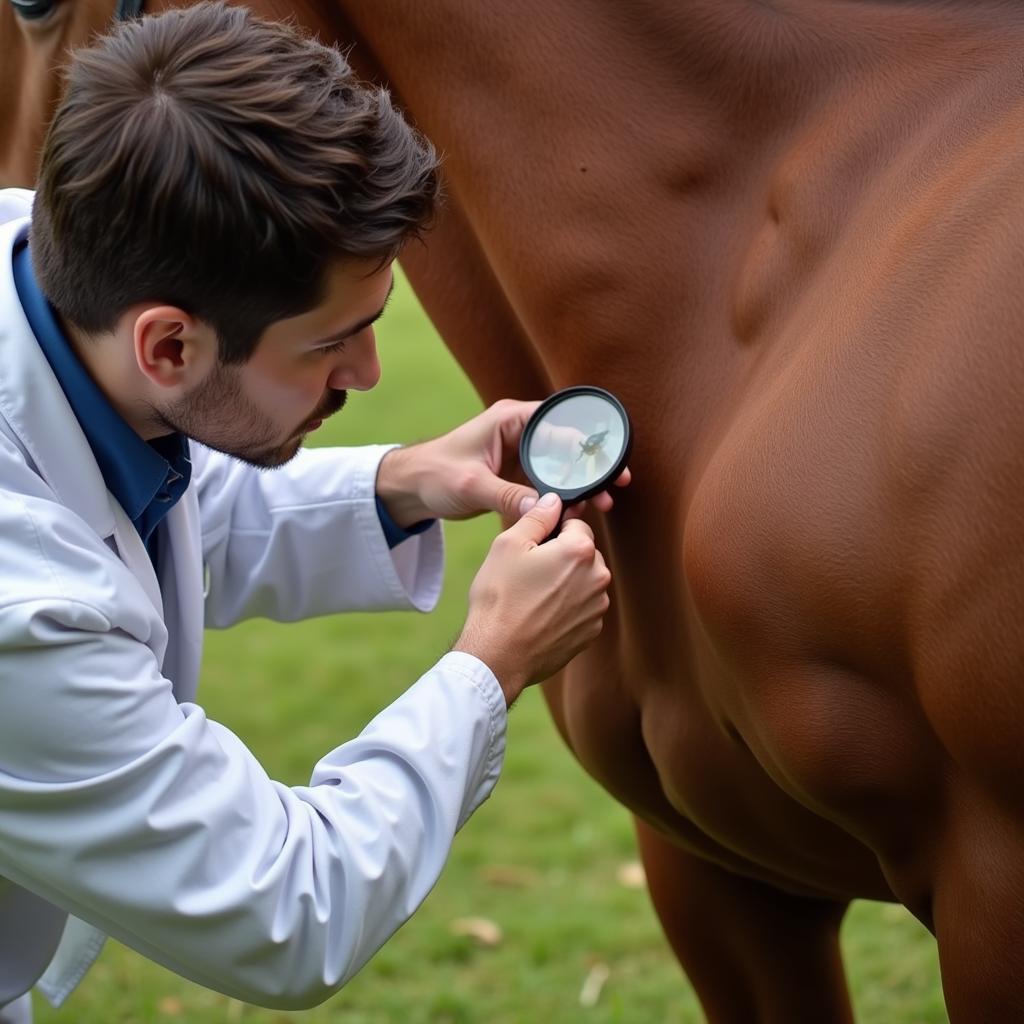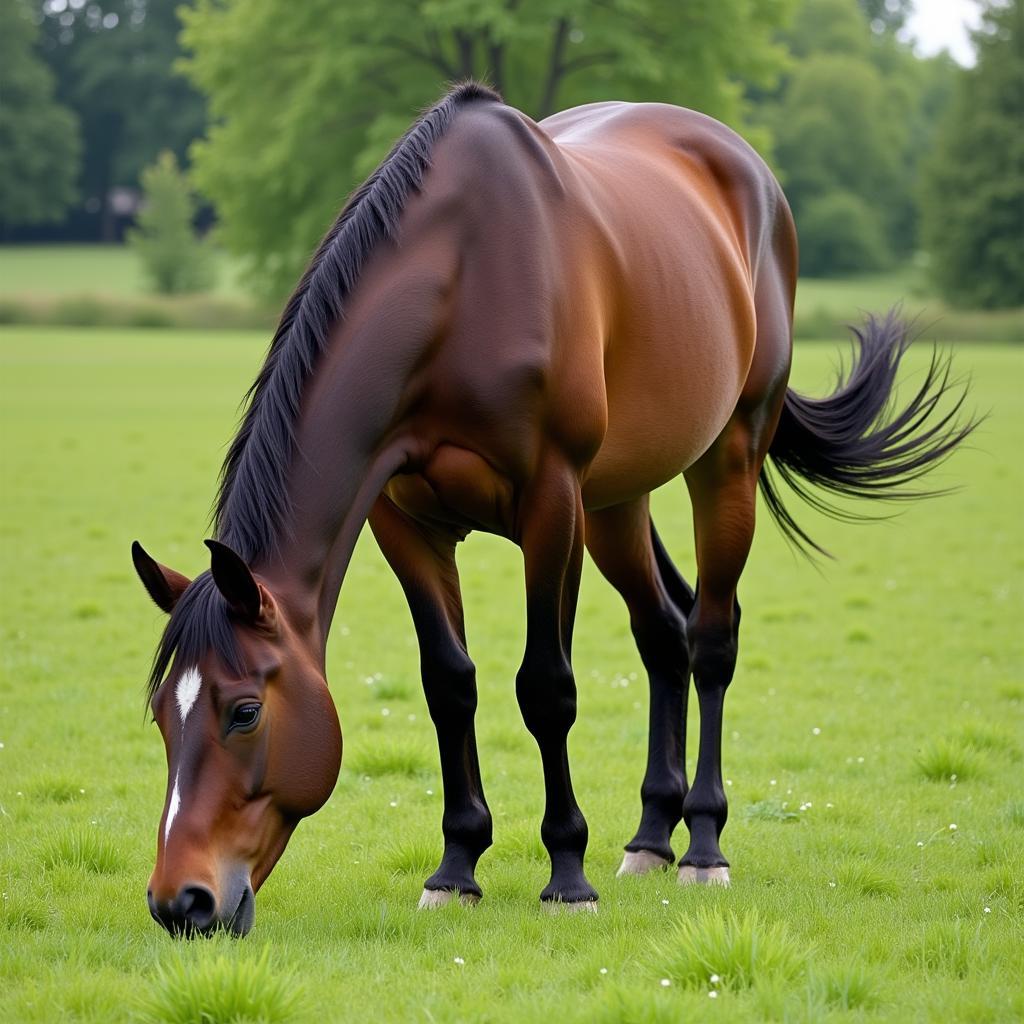Do Horses Have Fleas? This common question often arises among horse owners. While horses can be plagued by various external parasites, fleas are typically not among them. It’s crucial to understand the difference between parasites that affect horses and those that don’t to ensure proper equine health. Let’s delve into the world of horse parasites and dispel the myth of horse fleas.
Understanding Horse Parasites
Horses are susceptible to a range of external parasites, including ticks, lice, mites, and flies. These pests can cause significant discomfort, skin irritation, and even transmit diseases. While fleas are common in dogs and cats, they rarely infest horses. This is due to several factors, including the horse’s thick coat, grooming habits, and the physiological differences between horses and typical flea hosts.
Common External Parasites in Horses
- Ticks: Ticks are a significant concern for horses, as they can transmit diseases like Lyme disease and equine piroplasmosis. Regular tick prevention horses is essential.
- Lice: Lice are species-specific, meaning horse lice only infest horses. They cause itching and can lead to hair loss and skin damage.
- Mites: Different types of mites can affect horses, causing mange, which presents as intense itching, scaling, and crusting of the skin.
- Flies: Flies are a nuisance to horses, causing irritation and stress. Various methods, including diatomaceous earth fly control horses, can help manage fly populations.
Why Don’t Horses Typically Get Fleas?
The question “can horses have fleas?” has a simple answer: rarely. Several reasons contribute to this:
- Thick Coat: The dense hair coat of a horse makes it difficult for fleas to navigate and establish a breeding ground.
- Grooming Habits: Horses naturally groom themselves and each other, which helps remove potential parasites.
- Physiological Differences: Fleas prefer hosts with specific blood composition and body temperature, which differ in horses compared to cats and dogs.
What to Do If You Suspect a Flea Infestation
While unlikely, if you suspect your horse might have fleas, consult a veterinarian. They can accurately diagnose the issue and recommend appropriate treatment. It’s important to note that other parasites can mimic flea infestations, so a professional diagnosis is crucial. You might need flea and tick prevention for horses if other parasites are the issue.
 Veterinarian Examining Horse for Parasites
Veterinarian Examining Horse for Parasites
Maintaining a Healthy Environment for Your Horse
Preventing parasite infestations is crucial for your horse’s health. Regular grooming, manure management, and maintaining a clean stable environment can significantly reduce the risk of parasites. Internal parasites are also a concern, so knowing how often should you worm your horse is important.
Tips for Preventing Parasites in Horses
- Regular grooming
- Manure management
- Clean stable environment
- Consult with a veterinarian for appropriate parasite control programs
Conclusion: Focus on Preventing Other Parasites
While do horses have fleas isn’t a major concern, focusing on preventing other parasites is essential. Implementing a comprehensive parasite control plan, including regular deworming and external parasite prevention, will ensure your horse stays healthy and comfortable. Remember to consult your veterinarian for tailored advice and treatment options.
 Healthy Horse in Pasture
Healthy Horse in Pasture
FAQ
- Can horse flies infest humans?
- How often should I check my horse for ticks?
- What are the signs of lice infestation in horses?
- Are there natural remedies for fly control in horses?
- What is the best way to remove a tick from my horse?
- How can I prevent mites in my horse?
- What are the different types of dewormers for horses?
Do you have other questions about horse health and care? Explore more helpful articles on our website, including information on can horses have fleas.
Need further assistance? Contact us at Phone Number: 0772127271, Email: [email protected] or visit us at QGM2+WX2, Vị Trung, Vị Thuỷ, Hậu Giang, Việt Nam. We have a 24/7 customer support team.